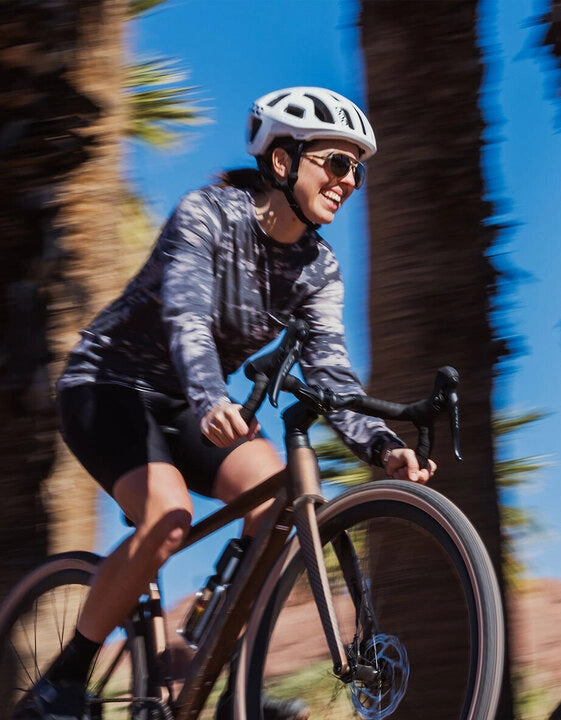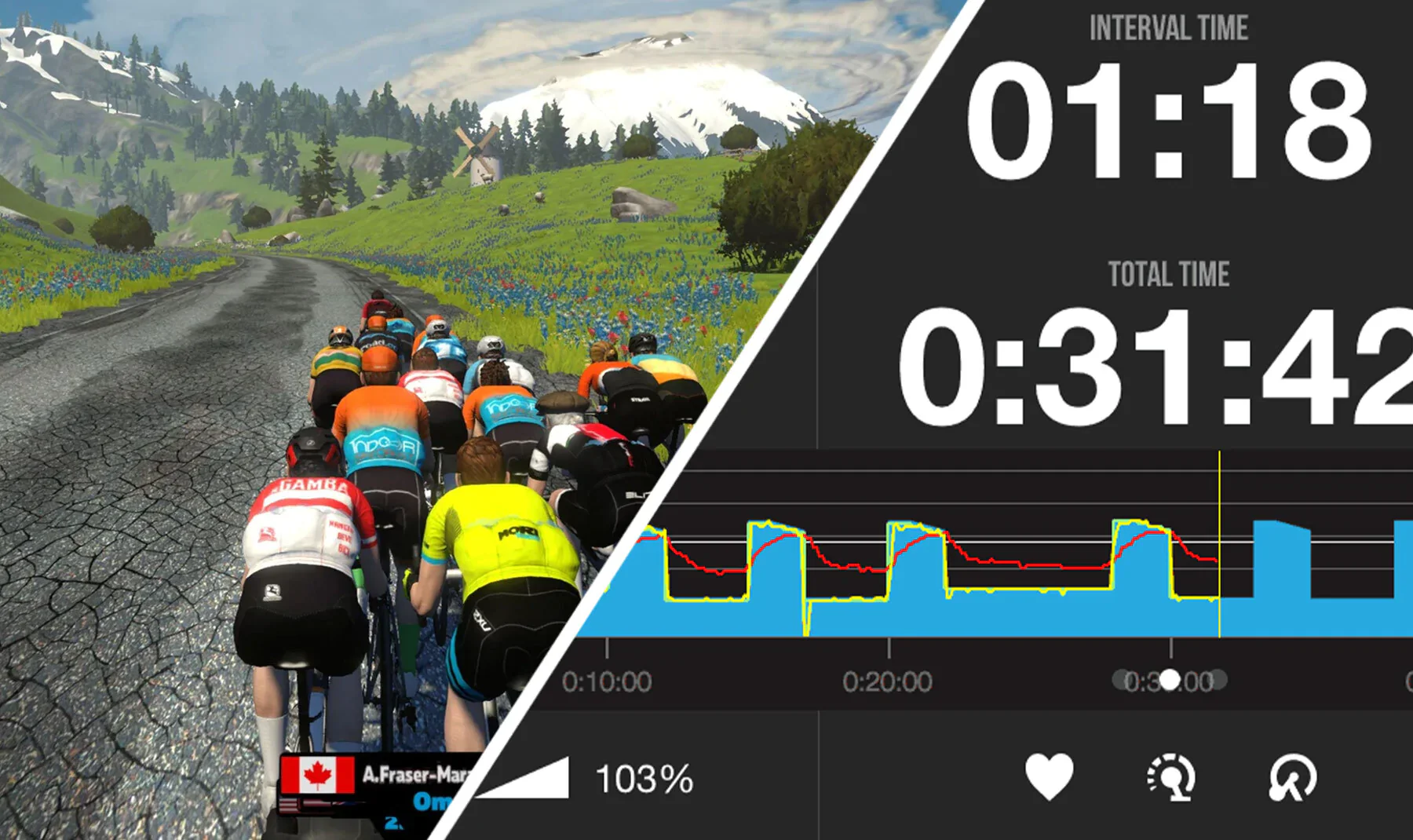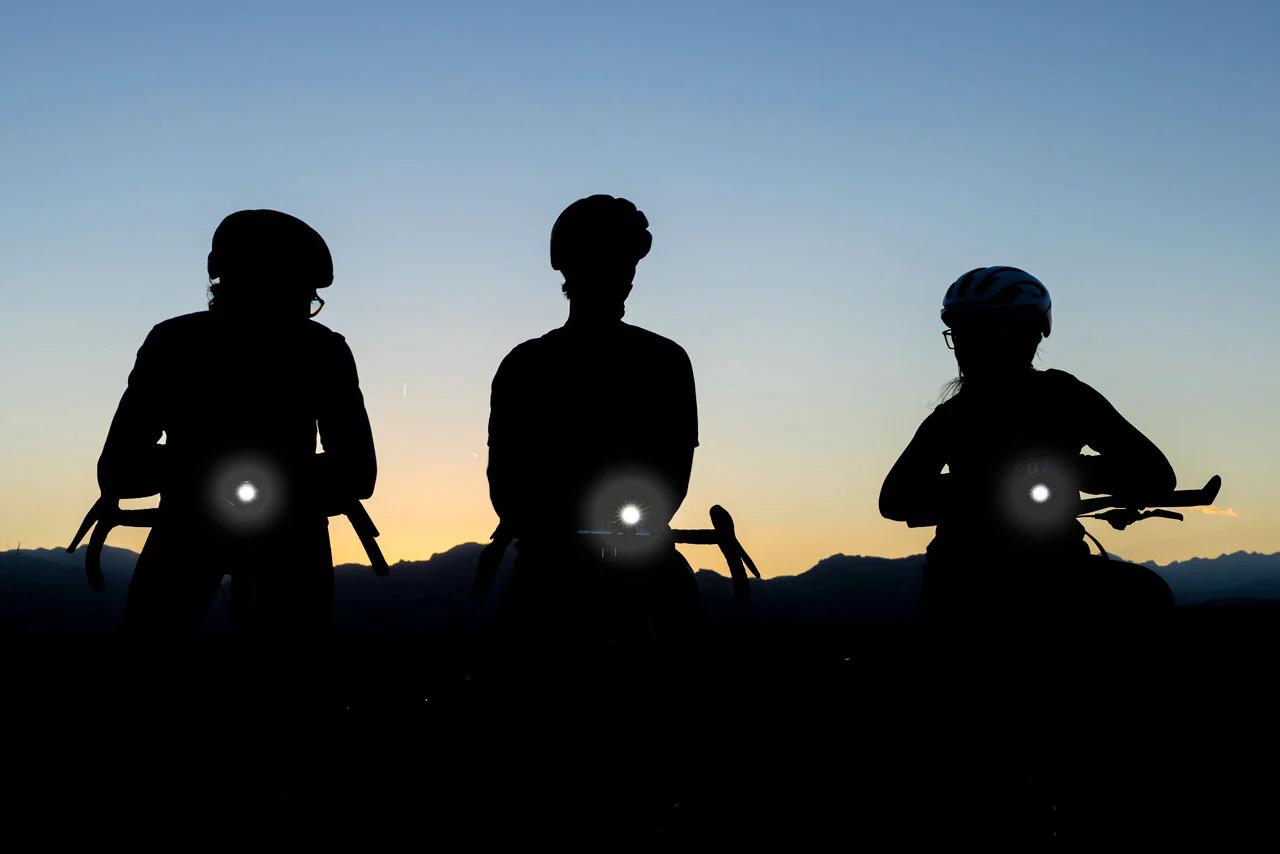Rocky Mountain comes from the birthplace of freeride: Vancouver’s North Shore. For the last 40 years, it has built mountain bikes designed to tackle the technical trails, big drops, and narrow skinnies nestled in the mountains of British Columbia. Its catalog of bikes covers everything from XC to Enduro, and even gravel. There are plenty of good reasons to own a Rocky Mountain, but how do you know which bike is right for you?
This overview is your guide to Rocky Mountain’s most popular models. Find out which riders fit with each bike so you can make an informed decision when buying your next bike.
[button]SHOP ROCKY MOUNTAIN[/button]
Contents
- Rocky Mountain build levels
- Suspension design and flip chips
- Fusion
- Element
- Instinct
- Altitude
- Slayer
- Solo
- Reaper
Rocky Mountain build levels
Rocky Mountain offers several models with an alloy or carbon frame. Alloy frames are less expensive. Carbon frames are lighter. (To learn more, read our article on Carbon vs. Aluminum frames.) Frame material is specified in the model name. For example: Altitude Alloy and Altitude Carbon.
The build level for each bike is designated by a number: 10, 30, 40, 50, 70, or 90. Higher number builds will cost more due to higher-end components. Alloy models are offered in 10, 30, and 50 builds. Carbon models are offered in 30, 50, 70, and 90 builds.
For example, the entry-level Element Alloy 10 uses a Shimano Deore drivetrain, basic RockShox suspension, and house-brand alloy wheels. The mid-range Element Alloy 50 uses a Shimano SLX/XT, Fox Performance suspension, and WTB alloy wheels. The top-of-the-line Element Carbon 90 pulls no punches with Shimano XTR, Fox Factory suspension, and lightweight carbon wheels.
[newsletter]
Suspension design and flip chips
Every full-suspension Rocky Mountain uses its Smoothlink suspension. It’s a 4-bar design that has been around for a long time, but for good reason. It provides proven performance and allows designers to fine tune the suspension and find the right balance between efficiency and comfort.
 The RIDE-9 flip chip on the Rocky Mountain Altitude.
The RIDE-9 flip chip on the Rocky Mountain Altitude.
Rocky Mountain’s full-suspension bikes also offer user-adjustable geometry through a suspension flip chip and/or a two-position axle.
Flip chips reside at the rear shock mounting bolt. These chips can be rotated, providing subtle changes to geometry with minimal effect on the shock tune. Rocky Mountain uses two different flip chip systems: RIDE-4 and RIDE-9. The RIDE-4 adjustment system has four different positions, while the RIDE-9 adjustment system has nine. Using these chips, the bike can be made “steeper” so it’s more agile or “slacker” so that it’s more stable.
The two-position axle is a flippable rear dropout that allows riders to choose a short or long chain stay length. Shortening the chain stay makes the bike more agile and playful, while lengthening it makes it more stable.
It may take some experimentation to find the best setting, but learning to dial in your own bike can be very rewarding.
Bikes with RIDE-4: Element, Slayer
Bikes with RIDE-9: Instinct, Altitude, Reaper
Bikes with Two-position axle: Altitude, Instinct
[button]SHOP ROCKY MOUNTAIN[/button]
Fusion
 Category: Trail hardtail
Category: Trail hardtail
Suspension travel: 100mm (front) / Hardtail
Wheel size: 29”
Frame material: Alloy
The Fusion blends efficiency, capability, and reliability into an affordable package. Rocky Mountain threw out the rulebook for 100mm hardtails and gave it a slack 66.5° head angle, extra low standover, and longer reach. This provides stability so riders of any skill level can descend faster with confidence.
Who it’s for: Beginners building skills. Riders looking for a fun hardtail to add to their quiver.
Element
 Category: XC / Downcountry / Trail
Category: XC / Downcountry / Trail
Suspension travel: 130mm (front) / 120mm (rear)
Wheel size: 29” (27.5” for XS)
Frame material: Alloy or carbon
 The Element is a do-everything race bike tailor-made for tough XC races that feature descents too rough for a pure XC bike. It’s been revamped for 2022 with 120mm of rear travel paired with a 130mm fork. The geometry is more aggressive with 30-40mm more reach in each size and a slack-for-XC 65.0-65.8° head angle.
The Element is a do-everything race bike tailor-made for tough XC races that feature descents too rough for a pure XC bike. It’s been revamped for 2022 with 120mm of rear travel paired with a 130mm fork. The geometry is more aggressive with 30-40mm more reach in each size and a slack-for-XC 65.0-65.8° head angle.
Who it’s for: Marathon XC racers. Riders looking for a “downcountry” bike.
[product-block handle="nc_2022-rocky-mountain-element-c70-29-or-or-s"/]
Instinct
 Category: Trail
Category: Trail
Suspension travel: 150mm (front) / 140mm (rear)
Wheel size: 29” or 27.5”
Frame material: Alloy or carbon
 If you’re looking for one mountain bike that does it all, the Instinct is Rocky Mountain’s solution. It splits the difference between the lightweight Element and Altitude enduro bike. This means it has enough travel to tackle gnarly trails while remaining efficient for climbs.
If you’re looking for one mountain bike that does it all, the Instinct is Rocky Mountain’s solution. It splits the difference between the lightweight Element and Altitude enduro bike. This means it has enough travel to tackle gnarly trails while remaining efficient for climbs.
Who it’s for: Riders who want a “quiver-killer” bike that can do a bit of everything.
[product-block handle="nc_2022-rocky-mountain-instinct-c70-md-29-gl-rd-m-1"/]
Altitude
 Category: Enduro
Category: Enduro
Suspension travel: 170mm (front) / 160mm (rear)
Wheel size: 29” or 27.5”
Frame material: Alloy or carbon
 The Altitude is a purpose-built enduro racer and a proven winner. Even if you’re not into racing, the Altitude is the ultimate weapon for speed on steep and rough trails. The confidence-inspiring geometry and ample suspension travel let you push your limits.
The Altitude is a purpose-built enduro racer and a proven winner. Even if you’re not into racing, the Altitude is the ultimate weapon for speed on steep and rough trails. The confidence-inspiring geometry and ample suspension travel let you push your limits.
Who it’s for: Enduro racers. Riders trying to attack descents as fast as possible
[product-block handle="nc_2022-rocky-mountain-altitude-c50-md-29-gy-pk-m"/]
Slayer
 Category: Freeride
Category: Freeride
Suspension travel: 170-200mm (front) / 170mm (29” rear) & 180mm (27.5” rear)
Wheel size: 29” or 27.5”
Frame material: Alloy or carbon
 The Slayer has been here since the beginning of freeride. With a massive 170-180mm of travel, it smashes everything in its path. If you need more confidence to send the gnarliest gap, the biggest jump, or the most insane feature, the Slayer is your bike. It’s even compatible with dual-crown forks so you can make the ultimate bike park shredder.
The Slayer has been here since the beginning of freeride. With a massive 170-180mm of travel, it smashes everything in its path. If you need more confidence to send the gnarliest gap, the biggest jump, or the most insane feature, the Slayer is your bike. It’s even compatible with dual-crown forks so you can make the ultimate bike park shredder.
Who it’s for: Freeriders. Bike park regulars. Riders hitting the gnarliest terrain.
[product-block handle="nc_2022-rocky-mountain-slayer-c50-29-gl-gn-l"/]
Solo
 Category: Gravel
Category: Gravel
Wheel size: 700c or 650b
Frame material: Alloy
You can’t ride trails all the time, right? The Solo is versatile enough to chase the podium at your local gravel race or tackle a daily commute. The alloy frame has clearance for 700x40mm or 650bx2.2” tires and includes fender mounts so you can stay dry when the weather turns.
Who it’s for: Gravel riders.
[product-block handle="nc_2022-rocky-mountain-solo-50-md-gl-gn-m-2"/]
Reaper
 Category: Kid’s full suspension
Category: Kid’s full suspension
Suspension travel: 120-150mm (front) / 130mm (rear)
Wheel size: 27.5", 26", or 24"
Frame material: Alloy
Kids want to shred too! The Reaper is the real deal, bringing the burliness of a full-sized trail bike to a junior-sized package. It’s available in three wheel sizes and it uses modern geometry that will let your child charge down trails with more safety and confidence.
Who it’s for: Junior and youth riders progressing to more advanced trails.
No matter where your riding takes you, it’s hard to go wrong with a Rocky Mountain. That’s why The Pro's Closet is now a Rocky Mountain dealer. If you’re hunting for a brand new Rocky Mountain, you can be the first to know about new arrivals by signing up for our newsletter!
[button]SHOP ROCKY MOUNTAIN[/button]
Photos courtesy of Rocky Mountain Bicycles.

























